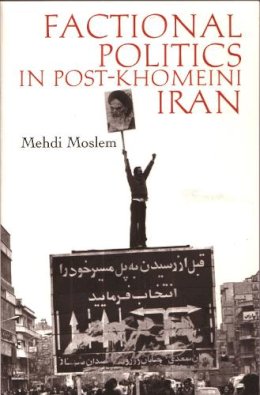
Stock image for illustration purposes only - book cover, edition or condition may vary.
Factional Politics in Post-Khomeini Iran
Moslem, Mehdi (Research Associate, Oxford University)
€ 39.28
FREE Delivery in Ireland
Description for Factional Politics in Post-Khomeini Iran
Paperback. Since President Mohammad Khatami's landslide victory in May 1997, the Islamic Republic of Iran has been a study in contradictions. Whilst Khatami condemned his nations's fanatical past, there still remains an opposing faction towards the West. This study analyses Iran's post-revolutionary politics. Series: Modern Intellectual and Political History of the Middle East. Num Pages: 320 pages, bibliography, index. BIC Classification: 1FBN; 3JJPN; JPQB; JPS. Category: (P) Professional & Vocational; (UP) Postgraduate, Research & Scholarly; (UU) Undergraduate. Dimension: 228 x 157 x 23. Weight in Grams: 530.
Since President Mohammad Khatami's landslide victory in May 1997, the Islamic Republic of Iran has been a study in contradictions. Whilst Khatami condemned his nations's fanatical past, there still remains an opposing faction towards the West. This study analyses Iran's post-revolutionary politics.
Since President Mohammad Khatami's landslide victory in May 1997, the Islamic Republic of Iran has been a study in contradictions. Whilst Khatami condemned his nations's fanatical past, there still remains an opposing faction towards the West. This study analyses Iran's post-revolutionary politics.
Product Details
Format
Paperback
Publication date
2002
Publisher
Syracuse University Press United States
Number of pages
320
Condition
New
Series
Modern Intellectual and Political History of the Middle East
Number of Pages
384
Place of Publication
New York, United States
ISBN
9780815629788
SKU
V9780815629788
Shipping Time
Usually ships in 15 to 20 working days
Ref
99-42
Reviews for Factional Politics in Post-Khomeini Iran
